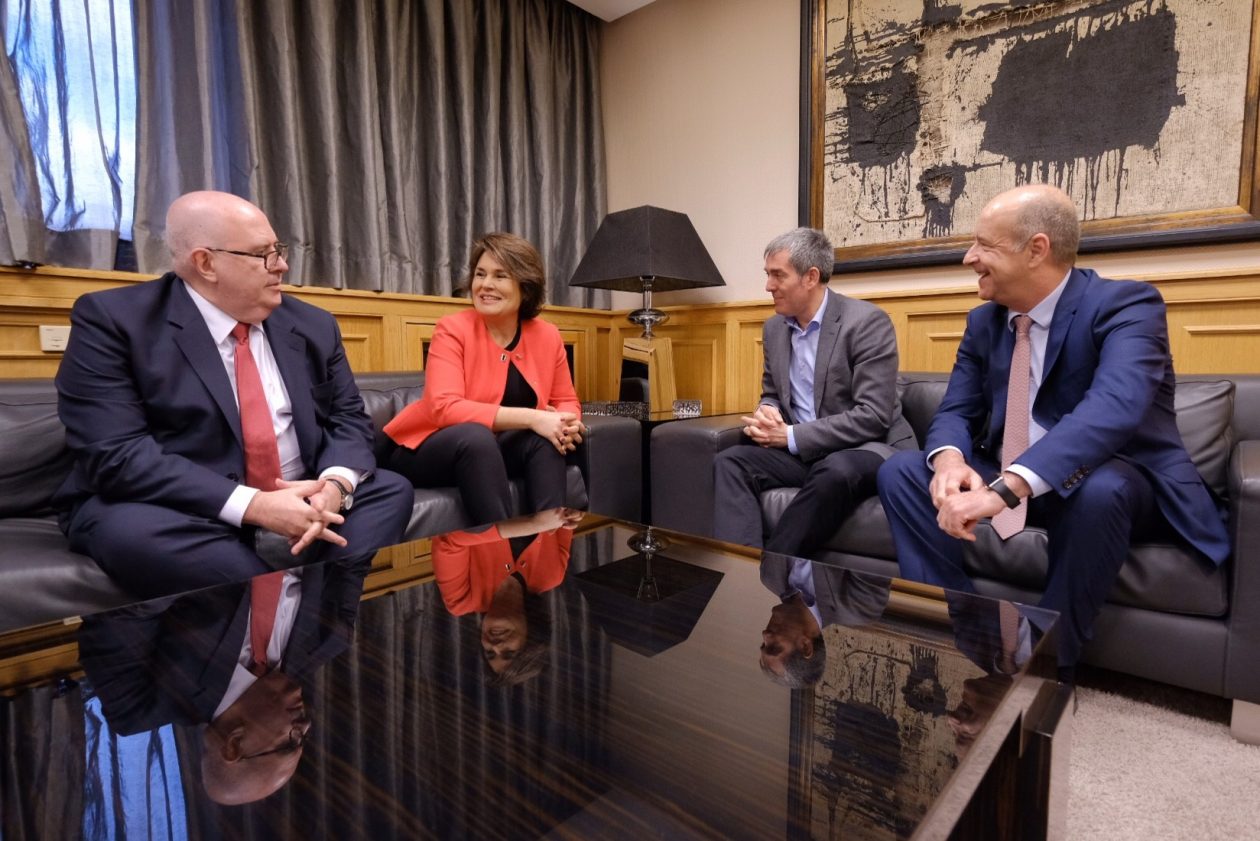Canary Islands.- The new President of the Canary Islands Special Zone (ZEC), Jimena Delgado-Taramona, and the Vice President of the Zone, Pedro Alfonso, held a meeting today, Monday 30 April, with the President of the Canary Islands Government, Fernando Clavijo, and the Minister of Economy, Industry, Trade and Knowledge, Pedro Ortega. In this first communication, following the inauguration of Delgado-Taramona as head of the Consortium on Monday 23 April at the Government Delegation in the Canary Islands, the President of the ZEC outlined the main lines of work during this new phase and expressed the importance of involving the ZEC in the economic policy designed by the Regional Executive as a driving force for progress in the strategy of diversification of the regional productive fabric in the context of an increasingly globalised economy.
“The ZEC is at the disposal of the regional government in order to make joint progress in attracting companies from emerging sectors capable of contributing towards a more diversified production model to the Canary Islands. Delgado-Taramona recalled that the Consortium is an example of the coordination between the State and Canary Island administrations to work for the economic and social development of the Archipelago. “Taxation is another question – we need to highlight are all the advantages of our territory, which are ultimately what makes us unique and different from other regions”, she stressed.
She also pointed out that one of the main objectives of the entity is to strengthen the strategic role of this REF incentive as an economic diversification tool to encourage companies capable of developing new business niches that generate value-added employment in emerging sectors to operate in the Canary Islands. “The key is to diversify the model and create quality employment for island professionals,” she said. She added that the ZEC will work for and for the economic diversification of each of the seven islands, a task for which, she pointed out, it will reach out to all the institutions, entities and bodies that work with the aim of attracting investment to the Canary Islands.
The President of the ZEC also emphasized the importance of projecting the Canary Islands as a geostrategic axis for investments on a world scale, as well as a reference point in the international tax context. “The ZEC as an instrument has to be one step ahead and act in the emerging sectors in which the Canary Islands are more competitive and have greater potential, such as the blue economy and the audiovisual sector, with the aim of creating a business ecosystem that generates direct and indirect employment and contributes to economic development. She added that in this line of business the Canary Islands should bet on innovative businesses that create new niches of economic activity and new business opportunities.
For his part, Pedro Alfonso announced the imminent presentation of a report on the impact of the ZEC on the socio-economic fabric of the Canary Islands and said that this was the basis for the important contribution and contribution of the instrument to the progress of the islands. He also said that before the end of the year this report will be complemented by another comparing the benefits of the ZEC with other European regions with low tax zones and analysing the opportunities and improvements so that the REF incentive remains competitive and progressively improves its contribution to the Gross Domestic Product (GDP) and employment in the Canary Islands.

